Discover UCL Institute of Advanced Studies
UCL Institute of Advanced Studies
UCL Institute of Advanced Studies
Author: UCL Institute of Advanced Studies
Subscribed: 65Played: 1,952Subscribe
Share
© All rights reserved
Description
The IAS is a space dedicated to intellectual freedom where disruptive thinking is not only allowed but encouraged and supported. It is a centre of advanced research, debate and dialogue across any kind of boundary, intellectual or institutional. It’s a forum where difficult, even intractable, social questions can be exposed to the scrutiny of rigorous critical enquiry from a variety of perspectives
This Soundcloud channel showcases content produced by the Institute of Advanced Studies and its research centres.
Note on the logo: the blue and green background is a detail of a banner (300x120cm; oil paint, oil pastel and compressed charcoal on canvas) that artist Lucile Haefflinger produced for and which is on display at the IAS.
This Soundcloud channel showcases content produced by the Institute of Advanced Studies and its research centres.
Note on the logo: the blue and green background is a detail of a banner (300x120cm; oil paint, oil pastel and compressed charcoal on canvas) that artist Lucile Haefflinger produced for and which is on display at the IAS.
446 Episodes
Reverse
Gala Rexer talks to Edna Bonhomme, culture writer, historian of science, journalist, and author of “A History of the World in Six Plagues: How Contagion, Class, and Captivity Shaped Us, from Cholera to COVID-19” (2025). The conversation covers theoretical and methodological questions about the relationship between confinement and disease, Edna’s anti/inter-disciplinary approach to writing, health and illness in literature, and how the intersectional fight for prison abolition relates to struggles for health equality.
This conversation was recorded in June 2025
Speakers: Dr Gala Rexer, Leverhulme Fellow at the University of Warwick and Honorary Research Fellow at the SPRC // Dr Edna Bonhomme
Producer: Gala Rexer and Trisha Hart
Editors: James Fox
In this podcast, Dr Clive Chijioke Nwonka talks to the Guardian journalist Lanre Bakare about his new book, 'We Were There: How Black Culture, Resistance and Community Shaped Modern Britain'.
Lanre Bakare was born in Bradford, West Yorkshire. He is a correspondent covering arts and culture for the Guardian, where his writing focuses on the intersection of art, race and culture across multiple disciplines. He was senior correspondent on the award-winning Cotton Capital project and has worked in New York and Los Angeles as part of the Pulitzer Prize-winning Guardian US team. Lanre is the author of the book We Were There: How Black culture, resistance and community shaped modern Britain. This book explores a Black Britain that for too long has been unknown and unexplored – and crucially, the one that exists beyond London.
Dr Clive Chijioke Nwonka is Associate Professor in Film, Culture and Society at UCL, and a Faculty Associate of the Sarah Parker Remond Centre for the Study of Racism and Racialisation.
This conversation was recorded in August 2025
Speakers: Dr Clive Chijioke Nwonka and Lanre Bakare
Producer:Trisha Hart
Editor: Amie Liebowitz
In this podcast, Subhadra Das answers ten questions on ten lies that make up Western Civilisation. The conversation covers looting, the value of art, the history of statistics, remaking public history, repatriating stolen objects, and what museums and institutions could be doing with their zombies.
Subhadra Das is a writer, historian, broadcaster and comedian who looks at the relationship between science and society. She specialises in the history and philosophy of science, particularly the history of scientific racism and eugenics. For nine years she was Curator of the Science Collections at University College London. She has written and presented podcasts and stand-up comedy shows, curated museum exhibitions, and has appeared on radio and TV. She is now working on a book about the golden age of detective fiction and the history of eugenics.
Lara Choksey is Lecturer in Colonial and Postcolonial Literatures at UCL English, and Associate Faculty at the UCL Sarah Parker Remond Centre.
In this episode, Ellen and Awa discuss European identity building and memory politics, highlighting how national narratives shape collective memory. They emphasise the selective remembrance of historical events, and its impact on national identities. Together, they examine the silencing of racialised people’s histories and experiences within discourse on national identity and how this, in turn, plays a role in the rise of xenophobia and far-right ideologies.
Stephanie discusses the valorisation of cultural heritage within the African diaspora, noting a shift in societal perception post-2020. She highlights the commodification of cultural pride by businesses and the rise of Afrobeats and other African music globally. Stephanie references the reinterpretation of cultural symbols like the Union Jack and the importance of authenticity in branding. Stephanie emphasises the fluidity of culture and the need to resist simplistic representations, concluding with her personal embrace of cultural heritage through wearing cornrows.
Discussion of Gargi’s research and the new module designed to open conversations about how we might understand the interplay between global politics and the global economy in this moment of rapid realignment.
Speakers:
Gargi Bhattacharyya, Paige Patchin, Luke de Noronha
Discussion of Paige’s research on questions of health, racism and why we must learn to understand the languages of the biological and the pharmaceutical if we are to grasp emerging technologies of racialisation.
Speakers:
Paige Patchin, Luke de Noronha, Gargi Bhattacharyya
Discussion of Luke’s research and why thinking about movement and bordering allows us understand emerging machineries of (perhaps) racialised violence.
Speakers:
Luke de Noronha, Paige Patchin, Gargi Bhattacharyya
In this Short Takes, Luke reads the preface to the paperback edition of Deporting Black Britons: Portraits of Deportation to Jamaica, published with Manchester University Press in June 2025.
In this episode, Awa and Jade discuss their experiences navigating morality and dealing with tensions and contradictions in their personal and professional lives. They explore the challenges of addressing systems of oppressions within their families and friendships, and break down what it means to study or work in spaces that uphold these structures. Together, they look into the importance of staying true to oneself, pushing beyond comfort zones, and finding a balance between personal and professional ethics.
In this episode, Awa and Marianne explore the concept of diaspora – is simply “being from somewhere else” enough to claim a diasporic identity? They unpack what it means to relate to a place and reflect on how diasporic experiences are shaped by history, culture, and power. The conversation also turns inward, as they grapple with the complexities of navigating positionalities within academia and the ethical implications of studying systems of oppression.
Dr Clive Chijioke Nwonka is joined by Baroness Lola Young of Hornsey. Lola Young became one of the first Black Women members of the House of Lords in 2004. Raised in foster care in north London, she studied at the New College of Speech and Drama, then worked as an actress, before becoming Professor of Cultural Studies at Middlesex University. Later, she worked in arts administration before receiving an OBE in 2001 for services to Black British History, and becoming an independent crossbench member of the House of Lords. She is active in campaigns on modern slavery and ethical fashion. Her new book, Eight weeks: Looking Back, Moving Forwards, Defying the Odds (Penguin 2024) is a deeply moving memoir that tells the remarkable life story of Baroness Young from her childhood in foster care the House of Lords. Here, Clive and Lola they discuss her latest book, its themes and some of the ideas and experiences that have shaped Lola’s writing, scholarship, and public life.
The UCL Gender and Feminism Research Network (GFRN) and qUCL present a conversation with ex-academic writer Sophie Lewis and Victoria Mangan, PhD student in the English Department at UCL.
On 7 March 2025, Sophie Lewis gave the annual qUCL/GFRN lecture on ‘The Feminism of Fools: When Real Feminists Do Fascism’, which explored the imperial, racist, and otherwise exclusionary legacies of various kinds of feminism – varieties of feminism that have not just been taken up by the regressive right, but have participated enthusiastically and feministly in these movements.
In advance of her talk, Victoria Mangan met with Sophie to ask her a few questions about her new book, ‘Enemy Feminisms,’ and especially to ask her: why this book, and why now? They went on to discuss the relationship between Sophie’s current work and her previous books on family abolition, why it is that we are so attached to feminism as a unilateral ‘good’ despite evidence to the contrary, and the particular Englishness of certain feminist activism in the 21st century.
******
Sophie Lewis, an ex-academic writer, lives in Philadelphia and is the author of ‘Full Surrogacy Now, Abolish the Family,’ and ‘Enemy Feminisms.’ Her essays appear everywhere from n+1 to the LRB. She is working on an essay collection, ‘Femmephilia,’ and a book, ‘The Liberation of Children’ (forthcoming from Penguin, 2027).
Victoria Mangan is a PhD student researching transgender literatures and theories. Her thesis enquires into how we read and interpret trans literature and what this growing body of work might offer literary criticism as a discipline. She is a Wolfson scholar in the humanities and has taught across several departments at UCL.
Lewis and Mangan are introduced by Alex Hyde, Associate Professor in Gender Studies and Co-Director of the Gender and Feminism Research Network at UCL.
The episode was produced by Marthe Lisson, Editor of Think Pieces.
In this episode of Diaspora Diaries, Stephanie and her friends Sari Dom and Henna discuss the role of partying in the revolution. They explore the concept of revolution as the dismantling of oppressive systems and the importance of joy and celebration. They emphasise the need for safe spaces for marginalised groups. As well as, highlighting the political nature of partying, the importance of community, and the balance between theory and practice. They also touch on the history of inclusive Queer and POC spaces, Dom’s experience at PXSSY PALACE and the challenges of maintaining these party spaces!
In this episode, Awa and Lavin discuss diasporic consciousness, focusing on the themes of belonging, identity, and home. Drawing on their experiences and reflecting on Warsan Shire's poem "Home," they explore what it means to feel at home.
In this first episode, Awa and Stephanie delve into the concept of black excellence, the challenges of imposter syndrome, and the importance of recognising and leveraging their cultural backgrounds as strengths.
Welcome to diaspora diaries, a brand new podcast by the Sarah Parker Remond Centre. Hosts Stephanie and Awa, MA students at the SPRC, explore the question “what does the diaspora have to say?” in a world which is constantly making things difficult for them. In Stephanie's and Awa's words: "We are here to deep dive and put our degree to good use. Diaspora diaries is about personhood and identity, about education and career, about friendships and intimacy. Basically, it's just about two girls from the African diaspora trying to negotiate with this world. We'll be drawn on politics, literature, history, pop culture, and thinkers like Audre Lorde, Mame-Fatou Niang and even a touch of Paul Gilroy to help us explore how our past shapes our present, and how we, in turn, navigate it. As this podcast progresses, you'll hear from scholars, students, poets and other voices. So, heads up, we are not the voice of the people, nor are we the voice of reason. We just want to share our thoughts with you and invite you to partake in our discussion. So, sit back, grab a drink or two, and maybe a journal, because this is diaspora diaries."
Vron Ware and Jim Scown join Lara Choksey for a conversation about the histories that connect soil to colonialism and imperialism, and why these connections matter for agricultural production now and in the future. Vron and Jim reflect on links between militarism and the English countryside, online far-right content and the decline of rural mental health services, and what nineteenth-century soil science might tell us about national identity. Discussing Vron’s book, Return of a Native (Repeater 2022), and their shared interest in the organic chemist Justus von Liebig, the conversation addresses the many scales operating in our sense of the local, from the parochial to the planetary.
Clive Chijioke Nwonka is joined by George the Poet. George is a spoken word artist, poet, rapper, podcast host and author, who has gained a following of over millions through his commentary and creative work addressing systemic injustice in the UK. Here, we discuss his latest book, Track Record, a fascinating memoir in intellectual exploration of race, belonging, music and injustice. Throughout this podcast, they’ll be discussing George’s latest book, its themes, their shared experiences growing up in North West London, and some of the ideas that formed and shaped George’s writing and intellectual work.
Lara Choksey welcomes Ben Woodard and Camille Crichlow for a conversation on scientific racism, drawing together the work of evolutionary biologist Stephen Jay Gould and decolonial theorist Sylvia Wynter. Focusing on two key works, Gould's The Mismeasure of Man (1981) that debunks the statistical methods and cultural beliefs of biological determinism, and Wynter's open letter to her colleagues on the 1992 Los Angeles Race Riots, 'No Humans Involved' (1994), the discussion ranges across fudged data, AI facial surveillance, the pseudo-science of white supremacy, and why a concept of the human beyond the purely biological matters.
Ben Woodard is an affiliated fellow at the ICI in Berlin. He received his PhD in Theory and Criticism from Western University in 2016. He regularly lectures at the Melbourne School of Continental Philosophy, the School of Materialist Research, and the New Centre for Research and Practice. He has two forthcoming books: Uninhabited: Science Fiction and the Decolonial (Zero Books) and F.H. Bradley and the History of Philosophy: Animating a Lost Idealism (Edinburgh University Press).
Camille Crichlow is a PhD candidate at the UCL Sarah Parker Remond Centre for the Study of Racism and Racialisation. Her research interrogates how the historical and socio-cultural narrative of race manifests in contemporary algorithmic surveillance technologies. Her PhD project traces the historical expansion of biometric facial surveillance, considering both its present and historical iterations within evolving regimes of racial thinking.
Lara Choksey is Lecturer in Colonial and Postcolonial Literatures in UCL English, and Faculty Associate in the UCL Sarah Parker Remond Centre.
Transcript available here: www.ucl.ac.uk/racism-racialisati…on-alexandre-white
www.ucl.ac.uk/racism-racialisation/


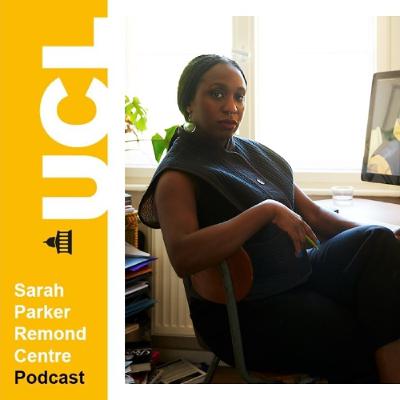
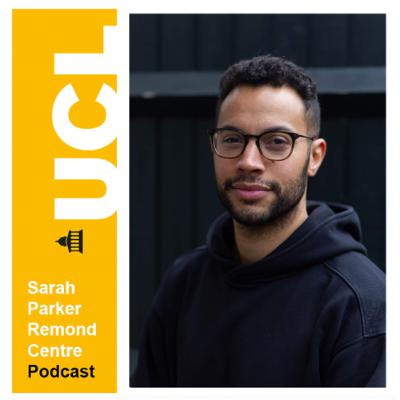
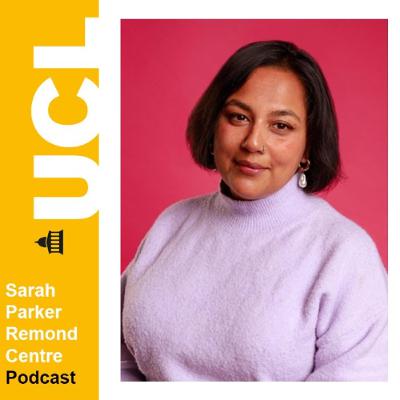

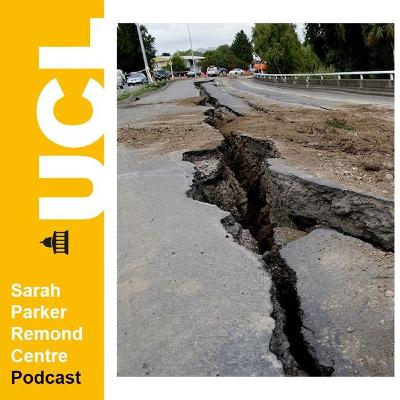
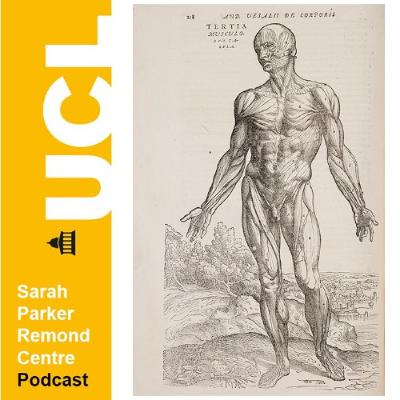
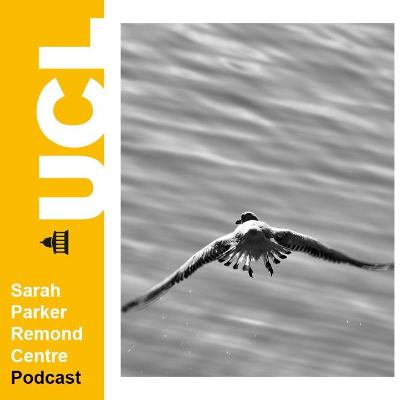
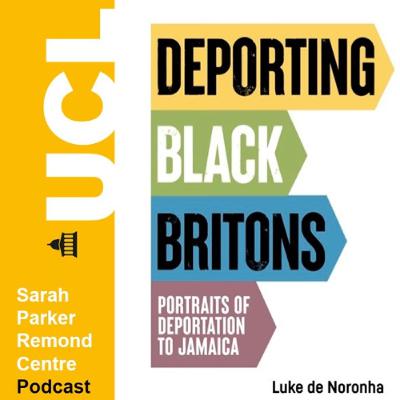
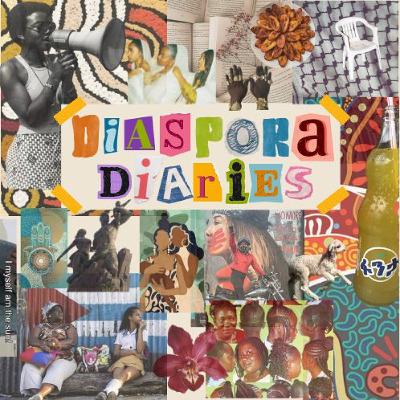
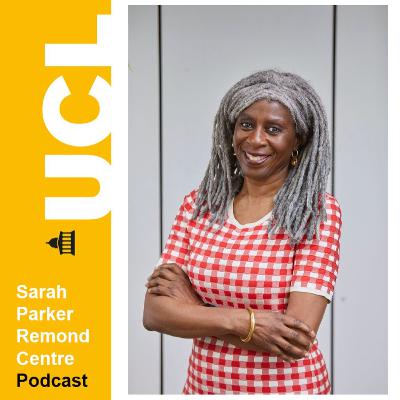







💚CLICK HERE Full HD>720p>1080p>4K💚WATCH>ᗪOᗯᑎᒪOᗩᗪ>LINK> 👉https://co.fastmovies.org